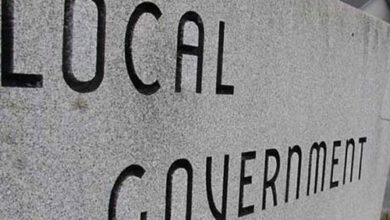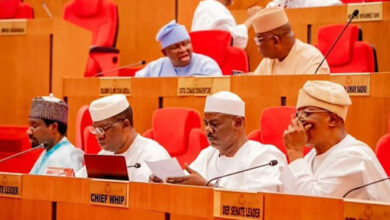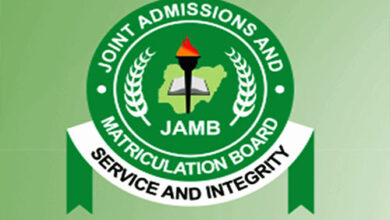“Multiple Wives, Growing Population”: Rep. Ado Doguwa Links Polygamy To Poverty In Northern Nigeria

Rep. Alhassan Ado Doguwa, the longest-serving northern member of the House of Representatives from Kano State, has linked the persistent poverty and insecurity in Northern Nigeria to deeply rooted cultural and religious practices, particularly the tradition of polygamy.
In an exclusive interview with Saturday Vanguard, the veteran lawmaker, known for his reticence in the media, offered candid insights into his three-decade parliamentary career and the socio-economic challenges facing the region.
Doguwa, who began his legislative journey in 1992 during the Third Republic, argued that the northern practice of marrying multiple wives, permitted by religion and tradition, contributes significantly to high population growth and economic strain. “For as long as my religion allows me to marry four wives, and they continue to reproduce, the population factor will be there,” he stated, admitting to having four wives himself and continuing to expand his family.
He emphasized that while he is financially comfortable, many northerners with similar family structures struggle, exacerbating poverty. “The level of poverty will continue to be there, even though my religion tells me nobody is responsible for poverty except God,” he added, describing the challenge as a complex interplay of tradition, religion, and culture that resists easy solutions.
On insecurity, Doguwa attributed its prevalence to widespread unemployment among northern youths, making them susceptible to illegal activities. He urged state and local governments to create job opportunities to curb this trend, while praising the 10th National Assembly’s efforts to fund security agencies adequately. “No amount of money could be too much for the security and lives of the people,” he said, calling for better executive oversight to ensure funds reach frontline security personnel.
Reflecting on his tenure as House Leader in the 9th Assembly under Speaker Femi Gbajabiamila, Doguwa described it as a high point of his career, crediting Gbajabiamila’s institutional reforms, such as the National Assembly Library and e-parliament systems, for enhancing legislative efficiency. He highlighted key legislative achievements, including the student loans bill, security oversight bills, and pro-public budgetary laws aimed at addressing education, insecurity, and agriculture. “We were not mere producers of bills but focused on quality legislation that added value to governance,” he noted.
Doguwa also commended the 10th Assembly under Speaker Abbas Tajudeen for its stability and diplomatic approach, particularly in navigating contentious debates like the Tax Reforms Bills. He praised Tajudeen’s humility and consultative leadership, describing him as a “first amongst equals” who prioritizes consensus over the gavel’s authority.
Addressing empowerment initiatives, Doguwa acknowledged the limitations of legislators’ roles but highlighted his efforts in capacity building, small loan schemes, and grants for women and youths in his constituency. He noted that the 10th Assembly and government programs, such as student loans and development commissions, are tackling these issues, though more proactive measures are needed.
Expressing optimism about President Bola Tinubu’s administration, Doguwa predicted transformative progress within the next two years, drawing parallels to Tinubu’s tenure as Lagos governor. “Nigeria will continue to be the envy of all African states,” he asserted, confidently forecasting Tinubu’s victory in the 2027 elections.





